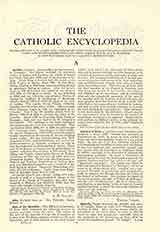

Alarcón, Pedro ANTONIO DE, novelist and poet, b. at Guadix, Spain, in 1833; d. at Valdemoro, near in 1891. After having shown ability for journalism at his native place he went to Madrid where he came into prominence, especially when at the outbreak of the Revolution of July, 1854, he edited the republican journal “El Làtigo”. A year later, in 1855, he published “El final de Norma”, a work written when he was only seventeen years old. As a volunteer he went in 1859 to the African war, where he wrote the most interesting and probably the most lasting of all his writings, “Diario de un testigo de la guerra de Africa” (1860). Some parts of this work, as “La batalla de Castillejos” and “La toma de Tetuàn”, have not been surpassed for vividness of description and grace of narrative by any Spanish writer. Similar to this work are Alarcbn’s historical sketches “Historietas nacionales”, which perhaps will have a more lasting fame than his novels. “El sombrero de tres picos” (Madrid. 1874; tr. M. Springer, New York, 1899) is the novel that carried its author’s name throughout Europe. The following year he published “El Escàndalo”, the publication of which created as much of a sensation as Coloma’s “Pequeñeces”. Better and more worthy of being known is the fantastic novel he wrote in the latter part of his life “El niño de la Bola” (Madrid, 1880; tr. M. J. Serrano, New York, 1892). His poetical qualities are revealed in “Poesías serias y humorísticas” and “Comedias escogidas” (1886), and particularly in the play “El hijo pródigo”. He was all his life a practical Catholic.
W. FURLONG

